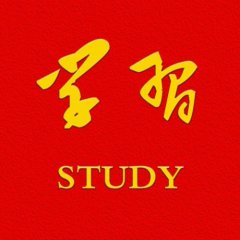Unexpected loanwords in Chinese which came from English!
Just like the enormously large portion of English vocabulary that was from other languages, in Chinese there're also quite a number of vocabulary with foreign origins. Over centuries, people adopted vocabulary from other languages to express concepts that were not common in local context. And when this vocabulary became a habit in conversations, those words adapted themselves into the Chinese language, just like how English has borrowed vocabulary from French, Latin, Greek, etc.. However, within the loanwords in Chinese, some may sound particularly Chinese despite they originated outside of China. Here I've selected some of those unexpected Chinese loanwords:
- 酷(kù): 酷 is a transcription of the English word "cool", which serves as an exclamatory particle to describe someone is awesome in their appearances or actions. Originally, 酷 means a serious or severe situation, as in the words "酷热"(kù rè, scorching) "酷刑"(kù xíng, savage tortures). However, with the concept borrowed along with the loanword, new words and phrases also have been invented using 酷 such as "酷炫"(kù xuàn, awesome and dazzling) "酷毙了"(kù bì le, dead awesome).
- 引擎(yǐn qíng): in Chinese, 引 can mean "to trigger off" and 擎 means "to lift and hold". Combined together, the word can actually be interpreted literally as "to trigger of a power that sustain a movement", which somehow fits well with the meaning of the original word from the English "engine".
- 卡通(kǎ tōng): this word comes from "cartoon". Similarly, the Chinese transliteration is also close to the original meaning by literal interpretation. 卡 means a card, and 通 can mean "easily understood". Hence 卡通 can be interpreted as "things drawn on a piece of paper that can be easily understood", which is one characteristic of cartoon.
- 幽默(yōu mò): if you want to praise someone by saying he's witty, 幽默 might probably be the most frequently used word. If somebody is 幽默, they are adept in inventing quality jokes and playing with words to create a comical and relaxing atmosphere for a conversation. But actually this word comes from "humour", and was added the meaning as an adjective in Chinese.
- 逻辑(luó jí): another splendid transliteration from English to Chinese. 逻 in Chinese means "to observe the surroundings vigilantly" and 辑 means "to compile information together after rearrangement and analysis". Thus, the word "logic" was introduced into Chinese with the meaning of "the process of gathering, contemplating, analysing, rearranging and interpreting information to draw a conclusion."
- 苦力(kǔ lì): differently, the word 苦力 looks exactly like a word with Chinese origin. Even the formation of this word follows the patterns of Chinese strictly. 苦 means "bitter", often representing sufferings and tough times in life. 力 means "force" or "labour". So 苦力 is a perfect combination of characters with the meaning of "hard labour(er)". However, shockingly, it actually came from the taboo "coolie".
- 台风(tái fēng): the story of this word would be the most intriguing one. In Mandarin Chinese, 台风 is a transliteration of "typhoon". Interestingly, however, the word "typhoon" came from the word 大风 in Cantonese. Therefore, in fact, 台风 is a loanword of a loanword in English that came from Cantonese, a dialect of Chinese.



11 Comments
Recommended Comments